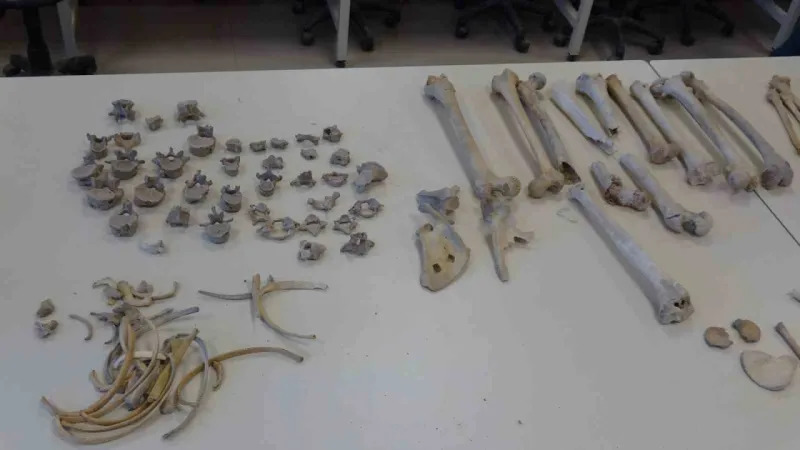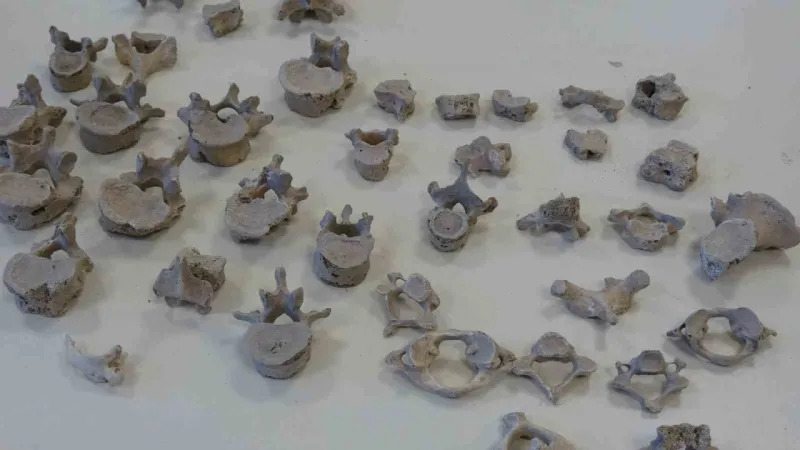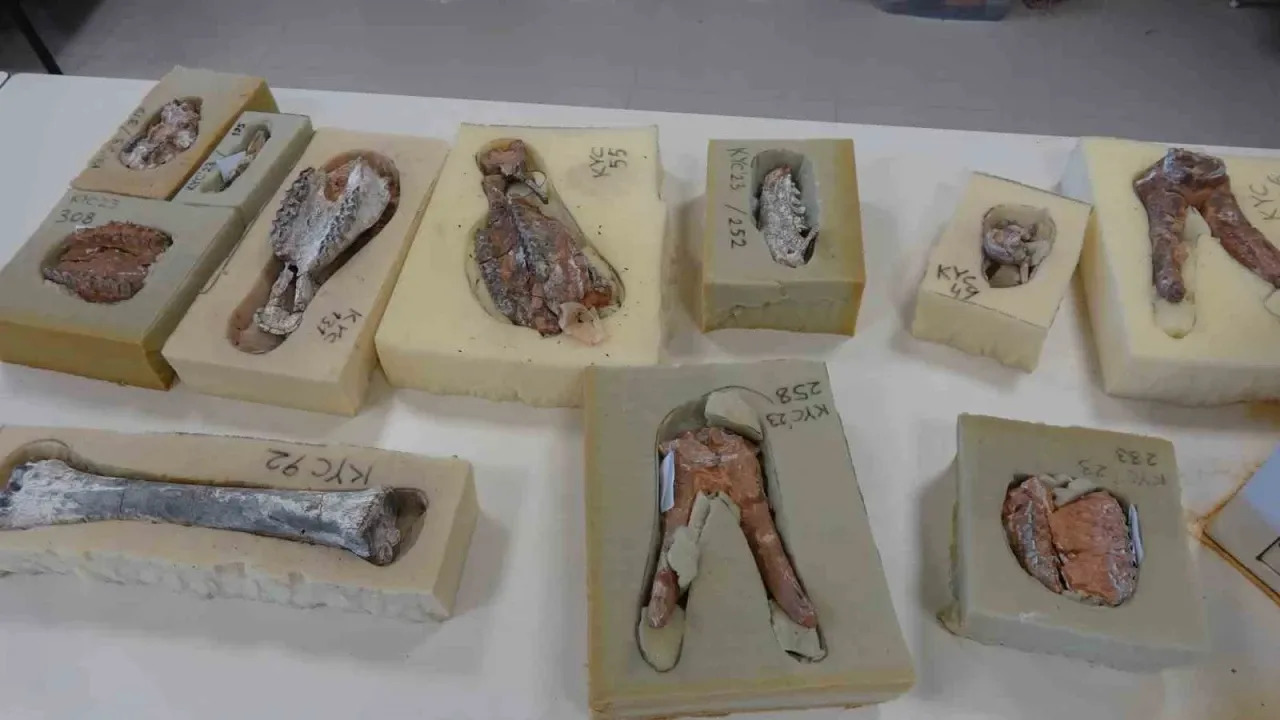Over the years since 2013, more than 6,000 human skeletons collected from 38 excavation sites across various regions of Türkiye have been housed at the Mehmet Akif Ersoy University (MAKÜ) Department of Anthropology in Türkiye’s Denizli Province. These bones and fossils have provided valuable insights, allowing students at the university to identify ancient murders or study diseases such as cancer.
Türkiye’s Anatolian geography offers a rich environment for anthropological research. Numerous universities across Türkiye conduct studies in the ancient cities scattered throughout the region, shedding light on the nation’s history.
With a growing interest in history, many universities have established Anthropology departments, offering students both theoretical knowledge and practical training using bone archives from excavation sites spanning different historical periods.
Head of the Anthropology Department at MAKÜ, Associate Professor Ahmet İhsan Aytek, along with faculty member Associate Professor Alper Yener Yavuz, has curated a vast bone archive for the university, facilitating hands-on anthropology courses for students.
Identifying murders or cancer
Since the initiation of the Antalya Eastern Garage excavation in 2013, academics have uncovered various civilizations, bringing over 6,000 human skeletons from nearly 38 excavations to the university archives. Speaking about the archive, Aytek stated, “Our work began in 2013 and spans more than 30 ancient cities across Türkiye. We study a significant portion of the human and animal skeletons unearthed from these ancient cities in our laboratories. Currently, we possess skeletons of over 6,000 individuals, and this number is expected to exceed 7,000 by the end of the year. This makes our laboratory likely the largest skeleton collection in Türkiye. Our collection includes human and animal skeletons from the Neolithic to the Byzantine period. We can speculate about the lives of these individuals, their professions, the diseases they suffered from, and even the causes of their deaths.”
Highlighting the significance of their work, Aytek mentioned, “Last year, our studies on human bones revealed a murder case and a type of cancer, which were published in important publications. Additionally, among the animal fossils, we discovered the first example of an elephant species living in Anatolia.”
In terms of academic prominence, Aytek noted, “Hacettepe and Istanbul universities are also renowned for their anthropology departments. However, we believe that our rapidly expanding skeleton collection, especially in recent years, surpasses those of these universities.”









